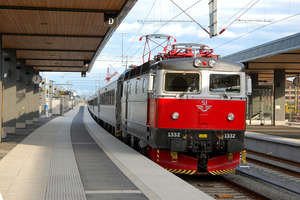Horizon 2020 - Trasporti, tutti i finanziamenti del work programme 2016-2017

E’ di oltre 936 milioni di euro lo stanziamento del work programme provvisorio 2016-2017 della sfida sociale 4 di Horizon 2020
La Commissione Ue ha pubblicato il programma di lavoro provvisorio 2016-2017 della sfida sociale 4, ‘Smart, green and integrated transport’, del programma Ue per la ricerca e l’innovazione Horizon 2020.
Obiettivo della quarta sfida sociale di Horizon 2020 è promuovere sistemi di trasporto efficienti, sostenibili ed ecocompatibili nell’Ue. Il programma di lavoro 2016-2017, che sarà approvato entro metà ottobre, si concentra su 4 aree di intervento:
- sviluppare di sistemi di trasporto efficienti e rispettosi dell’ambiente,
- migliore mobilità,
- rafforzare la comeptitività dell’industria europea dei trasporti,
- promuovere ricerche socio-economiche che supportino le politiche Ue in materia di trasporti.
Le attività previste dal programma di lavoro saranno messe in atto mediante diversi strumenti, compresi 3 inviti a presentare proposte, articolati in diversi temi (topics):
1. Mobility for Growth (434,6 milioni di euro)
1.1 Aviation
- MG-1.1-2016: Reducing energy consumption and environmental impact of aviation
- MG-1.2-2017: Reducing aviation noise
- MG-1.3-2017: Maintaining industrial leadership in aeronautics
- MG-1.4-2016-2017: Breakthrough innovation
- MG-1.5-2016-2017: Identification of gaps, barriers and needs in the aviation research
1.2 Waterbone
- MG-2.1-2017: Innovations for energy efficiency and emission control in waterborne transport
- MG-2.2-2016: Development, production and use of high performance and lightweight materials for vessels and equipment
- MG-2.3-2016: New and improved transport concepts in waterborne transport
- MG-2.4-2017: Complex and value-added specialised vessels
1.3 Safety
- MG-3.1-2016: Addressing aviation safety challenges
- MG-3.2-2017: Protection of all road users in crashes
- MG-3.3-2016: Safer waterborne transport and maritime operations
- MG-3.4-2016: Transport infrastructure innovation to increase the transport system safety at modal and intermodal level (including nodes and interchanges)
- MG-3.5-2016: Behavioural aspects for safer transport
- MG-3.6-2016: Euro-African initiative on road safety and traffic management
1.4 Urban mobility
- MG-4.1-2017: Increasing the take up and scale-up of innovative solutions to achieve sustainable mobility in urban areas
- MG-4.2-2017: Supporting 'smart electric mobility' in cities
- MG-4.3-2017: Innovative approaches for integrating urban nodes in the TEN-T core network corridors
- MG-4.4-2016: Facilitating public procurement of innovative sustainable transport and mobility solutions in urban areas
- MG-4.5-2016: New ways of supporting development and implementation of neighbourhood-level and urban-district-level transport innovations
1.5 Logistics
- MG-5.1-2016: Networked and efficient logistics clusters
- MG-5.2-2017: Innovative ICT solutions for future logistics operations
- MG-5.3-2016: Promoting the deployment of green transport, towards Eco-labels for logistics
- MG-5.4-2017: Potential of the Physical Internet
1.6 Intelligent transport systems
- MG-6.1-2016: Innovative concepts, systems and services towards 'mobility as a service'
- MG-6.2-2016: Large-scale demonstration(s) of cooperative ITS
- MG-6.3-2016: Roadmap, new business models, awareness raising, support and incentives for the roll-out of ITS
1.7 Infrastructure
- MG-7.1-2017: Resilience to extreme (natural and man-made) events
- MG-7.2-2017: Optimisation of transport infrastructure including terminals
- MG-7.3-2017: The Port of the future
1.8 Socio-economic and behavioural research and forward looking activities for policy making
- MG-8.1-2016: Research, technology development and market trends for the European transport manufacturing industries
- MG-8.2-2017: Big data in Transport: Research opportunities, challenges and limitations
- MG-8.3-2016: Assessing future requirements for skills and jobs across transport modes and systems
- MG-8.4-2017: Improving accessibility, inclusive mobility and equity: new tools and business models for public transport in prioritised areas
- MG-8.5-2017: Shifting paradigms: Exploring the dynamics of individual preferences, behaviours and lifestyles influencing travel and mobility choices
- MG-8.6-2016: Innovation awards for students and researchers in the context of the Transport Research Arena conference - TRA 2018
2. Automated Road Transport (114 milioni di euro)
- ART-01-2017: ICT infrastructure to enable the transition towards road transport automation
- ART-02-2016: Automation pilots for passenger cars
- ART-03-2017: Multi-Brand platooning in real traffic conditions
- ART-04-2016: Safety and end-user acceptance aspects of road automation in the transition period
- ART-05-2016: Road infrastructure to support the transition to automation and the coexistence of conventional and automated vehicles on the same network
- ART-06-2016: Coordination of activities in support of road automation
- ART-07-2017: Full-scale demonstration of urban road transport automation
3. European Green Vehicles Initiative (206,5 milioni di euro)
- GV-01-2017: Optimisation of heavy duty vehicles for alternative fuels use
- GV-02-2016: Technologies for low emission light duty powertrains
- GV-03-2016: System and cost optimised hybridisation of road vehicles
- GV-04-2017: Next generation electric drivetrains for fully electric vehicles, focusing on high efficiency and low cost
- GV-05-2017: Electric vehicle user-centric design for optimised energy efficiency
- GV-06-2017: Physical integration of hybrid and electric vehicle batteries at pack level aiming at increased energy density and efficiency
- GV-07-2017: Multi-level modelling and testing of electric vehicles and their components
- GV-08-2017: Electrified urban commercial vehicles integration with fast charging infrastructure
- GV-09-2017: Aerodynamic and flexible trucks
- GV-10-2017: Demonstration (pilots) for integration of electrified L-category vehicles in the urban transport system
- GV-11-2016: Stimulating European research and development for the implementation of future road transport technologies
- GV-12-2016: ERA-NET Co-fund on electromobility
Il programma di lavoro prevede anche altre azioni, tra cui:
- il Fast Track to Innovation Pilot,
- lo Strumento per le PMI (SMEInst-10-2016-2017. Small business innovation research for transport and smart cities mobility),
- due premi Horizon (Horizon prize for the cleanest engine retrofit, Horizon prize for the cleanest engine of the future),
- la selezione di esperti esterni per il monitoraggio dei progetti,
- l’osservatorio per la mobilità urbana (ELTIS).
Il budget provvisorio del programma di lavoro ammonta a oltre 936 milioni di euro, di cui circa 450 milioni di euro per il 2016 e più di 486 milioni di euro per l’anno successivo.
Links
Bozza programma di lavoro 2016-2017
Seal of Excellence – sigillo di qualita' per sinergie tra fondi SIE e Horizon 2020
Horizon 2020 – SME Instrument, Italia prima per PMI selezionate
Photo credit: abaransk / Foter / CC BY-NC-ND


